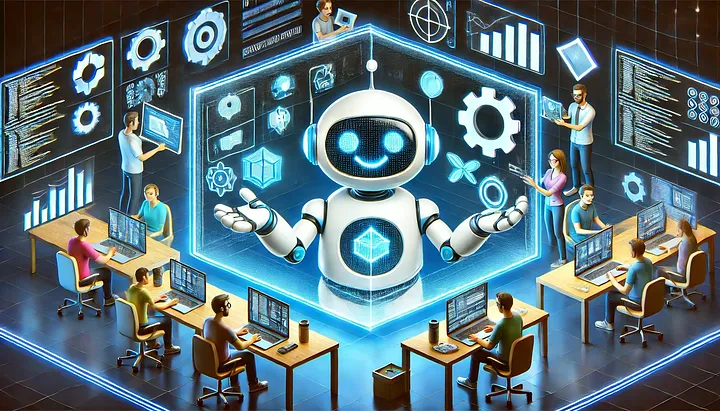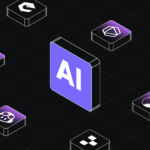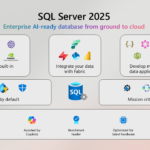Introduction: The Rise of AI in Software Development
Over the past decade, artificial intelligence (AI) has evolved from a niche technology into a cornerstone of innovation across industries. In software development, AI is no longer just a buzzword—it’s a transformative force reshaping how we build, test, and deploy applications. By automating repetitive tasks and enabling smarter decision-making, AI allows developers to focus on what truly matters: delivering impactful, high-quality software.
At the heart of this AI revolution are large language models (LLMs). Trained on vast codebases, these advanced models unlock new possibilities for understanding, analyzing, and even writing code. They can detect subtle bugs, suggest improvements, and enforce coding standards—tasks that once required intensive manual effort. The result? Faster, more precise, and more collaborative development.
A prime example of this innovation is AI-powered code review. Traditionally a critical but time-consuming step prone to human error, code reviews now benefit from automation that delivers detailed feedback in minutes rather than hours or days. Acting as always-available assistants, AI tools boost team productivity and let human reviewers focus on strategic, higher-level concerns.
Among leaders in this space is API4AI, offering AI-powered APIs tailored to diverse industries. Their product CRken exemplifies next-generation code review tools: built on cutting-edge LLMs and integrated seamlessly with GitLab Merge Requests, CRken delivers detailed, actionable insights that fit naturally into modern development workflows.
As we explore the trends driving AI-powered code reviews in 2025, it’s clear this technology is no longer optional—it’s essential for any forward-thinking software team. This article will highlight how LLM advancements shape these tools, the benefits they bring, and the opportunities they unlock for the future of software development.
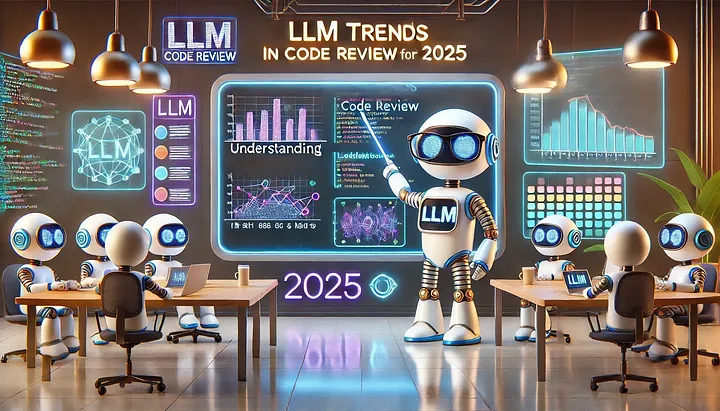
Understanding LLM Trends in Code Review for 2025
Large language models have quickly shifted from experimental tech to indispensable assets in modern development. In 2025, several key trends define their role in automating and enhancing code reviews:
Enhanced Contextual Understanding
Modern LLMs go beyond surface-level syntax checks. They grasp the intent behind code and evaluate its alignment with the overall project architecture. This means detecting mismatched design patterns, inefficient algorithms, or inconsistent naming—issues traditional static analysis might miss. For example, an LLM-powered review can flag when a function violates architectural guidelines, suggesting strategic corrections that save costly rewrites.
Multi-Language Proficiency
Development environments are increasingly polyglot. Today’s LLMs support a broad range of languages—from popular ones like Python, JavaScript, and Java to niche or legacy languages such as COBOL and Fortran. This versatility enables teams to rely on a single AI tool for their entire codebase, delivering consistent, high-quality feedback regardless of language.
Real-Time Feedback Capabilities
Gone are the days of waiting hours or days for code review feedback. LLM-powered tools now provide real-time suggestions and error detection as developers write code. This transforms code review into a collaborative, on-the-spot process, reducing rework and accelerating learning—especially for junior developers.
Integration with CI/CD Pipelines
Embedding AI-powered code reviews directly into continuous integration and continuous delivery workflows automates quality checks with every commit or pull request. Tools like CRken use GitLab webhooks to trigger automatic reviews on Merge Requests, delivering feedback inside familiar platforms. This reduces manual overhead, minimizes missed issues, and speeds up development cycles.
Together, these trends are turning code reviews from a tedious bottleneck into a streamlined, intelligent, and highly productive part of the software lifecycle.
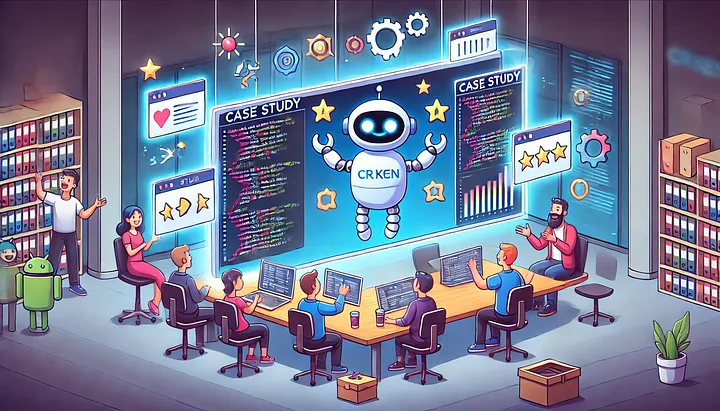
How CRken Aligns with 2025 Trends
CRken exemplifies the power of modern LLMs applied to real-world development workflows. Here’s how it embodies the key trends of 2025:
Accurate, Nuanced Feedback with State-of-the-Art LLMs
CRken’s advanced LLMs analyze code deeply—beyond syntax—to understand structure, context, and intent. It flags subtle security risks, suggests performance improvements, and enforces architectural consistency with actionable, precise feedback. This reduces errors early and results in cleaner, more maintainable code.
Seamless GitLab Integration for Automated Reviews
CRken integrates natively with GitLab, triggered automatically by webhooks whenever a Merge Request is opened or updated. Developers receive relevant insights directly within GitLab’s interface—no extra tools or context switching needed—keeping workflows smooth and uninterrupted.
Multi-Language Support for Diverse Stacks
Supporting a wide range of languages—including JavaScript, Python, Go, Kotlin, and even legacy languages like COBOL—CRken meets the demands of today’s diverse tech stacks. Teams can standardize reviews across their entire codebase with one tool, simplifying processes and ensuring consistent quality.
Efficiency-Focused Feedback Delivery
By automating reviews, CRken reduces code review times by an average of 30%, accelerating release cycles and minimizing developer downtime. Immediate feedback also lowers cognitive load by letting developers address issues right away instead of juggling multiple tasks.
These capabilities make CRken a standout AI-powered code review tool that helps development teams embrace the future of software engineering with confidence and efficiency.
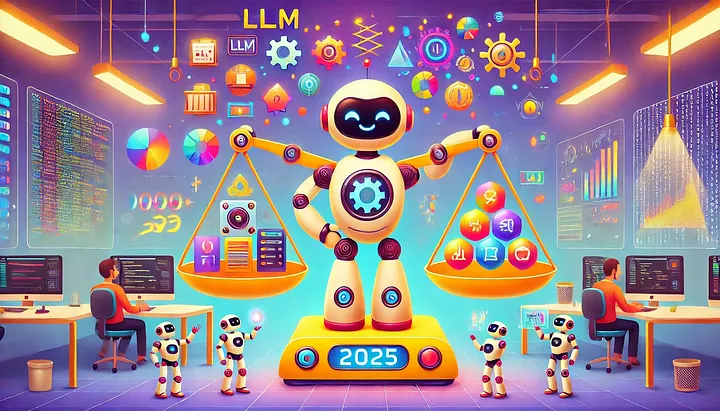
Benefits of AI-Powered Code Reviews for Modern Development Teams
In today’s fast-paced development environment, teams face constant pressure to deliver features quickly without sacrificing quality. AI-powered code reviews bring transformative benefits:
Accelerated Development Cycles
Instant automated feedback eliminates waiting for human reviewers, speeding up iteration and deployment. Teams respond faster to market needs with fewer bottlenecks.
Reduced Technical Debt
Precise, context-aware recommendations help address not only immediate bugs but also long-term maintainability. AI tools suggest refactoring, scalability improvements, and alignment with design patterns, preventing the buildup of costly technical debt.
Improved Collaboration
AI-generated comments are clear, actionable, and integrated directly into developer workflows. This clarity reduces back-and-forth and fosters smoother communication, helping teams improve code quality collaboratively.
Enhanced Scalability
As projects grow, consistent code review across large teams and complex codebases becomes challenging. AI-powered tools scale effortlessly, providing unbiased, high-quality reviews for all contributors, languages, and modules—without fatigue or oversight.
By automating tedious tasks, delivering expert feedback, and enabling better collaboration at scale, AI-powered code reviews revolutionize how modern teams build software. These tools don’t just save time—they elevate the entire development process, empowering teams to innovate faster and build better.
